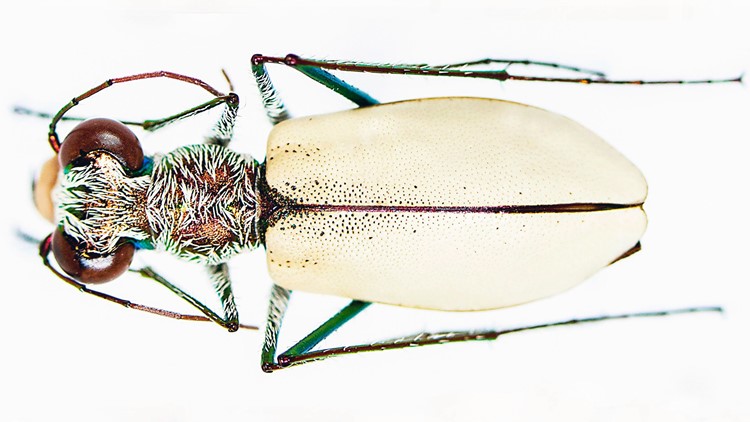HOUSTON — A research team at Rice University is buzzing with excitement over a bug.
Evolutionary biologist Scott Egan and his team recently unearthed a new species of tiger beetle. They're calling it Eunota houstoniana as a nod to the Houston region where it resides.
“It is amazing that within the city limits of Houston, we still don’t know all the species of insects or plants we share our region with,” Egan said. “I’m always interested in learning more about the biodiversity of the Gulf Coast.”
The team combined cutting-edge genetic sequencing technology with traditional measurements of physical appearance and geographic range data to identify distinct biological differences previously overlooked.
Eunota houstoniana was once considered the more common Eunota circumpicta, but the team’s research revealed significant differences. They say Eunota houstoniana has distinct genetic and physical characteristics. It's slightly smaller with more subdued metallic coloring and unique behavior and habitat preferences.
The new species prefers saline soils often found near salt domes and oil extraction sites along the Gulf Coast. Its habitat ranges from coastal regions to inland areas, showcasing its adaptability.
Even though it's newly discovered, Egan said the beetle is likely a threatened species because its habitats are in jeopardy.
“Because of all the growth around Houston, some of these populations have likely gone extinct while others have been hiding right out our back door,” Egan said.
Researchers hope their studies will lead to essential groundwork for conservation efforts.
Eunota houstoniana marks the 17th new species described by Egan and his collaborators during his 11 years at Rice.
The study is published online in Nature Scientific Reports.



